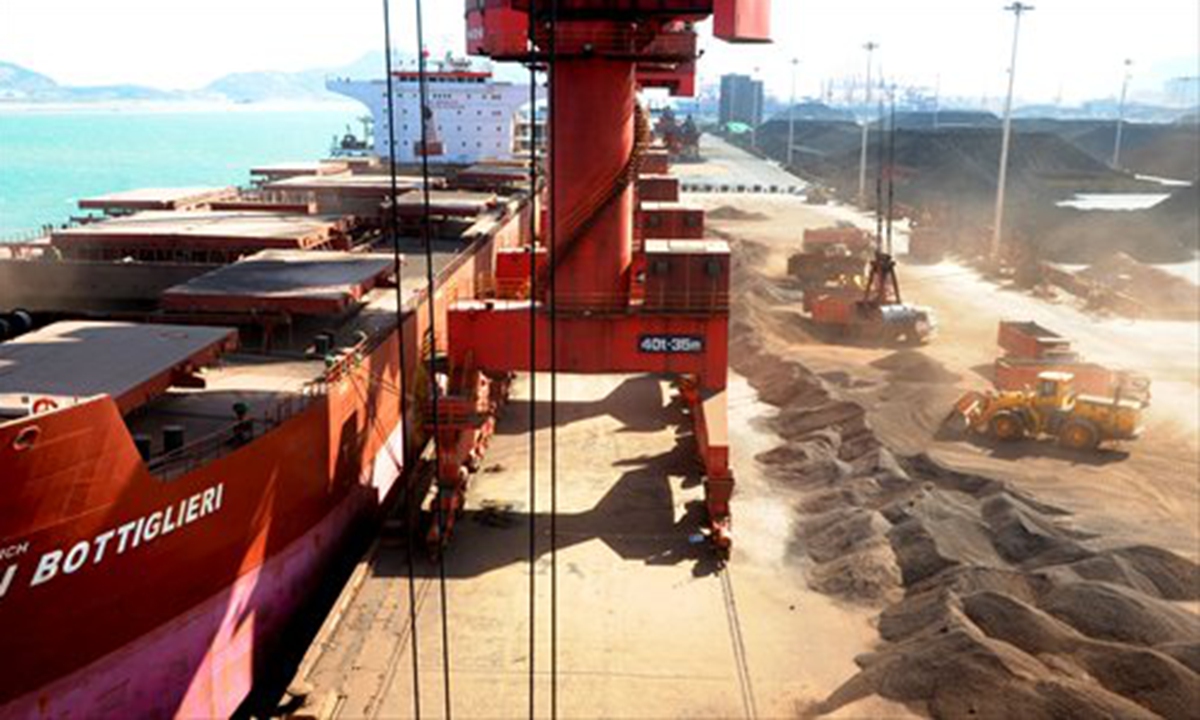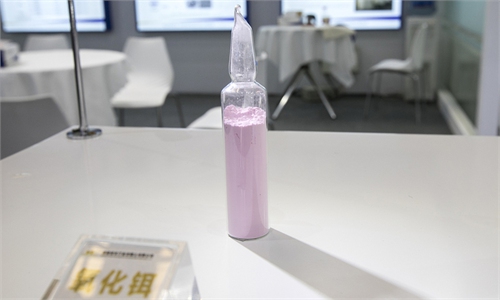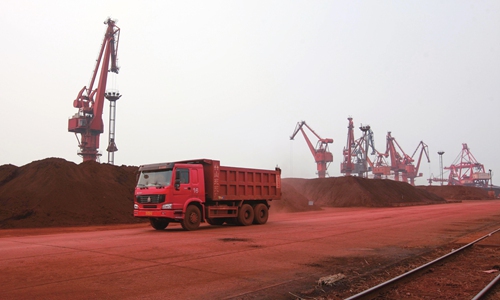
A ship unloads rare-earth metals at the port of Lianyungang, East China's Jiangsu Province. Photo: IC
China's newly released negative lists of sectors off-limits to foreign direct investment showed on Monday that overseas investors are prohibited from investing in rare-earth mining projects.
Experts said that the move aims to protect and optimize domestic rare-earth resources, which are essential for many key technologies, while improving the core value of the industry chain.
The Ministry of Commerce and the National Development and Reform Commission (NDRC) jointly issued two negative lists on Monday, which will take effect on January 1, 2022, which were further shortened in line with the country's opening-up drive.
However, both lists clearly indicated that foreign investors will not be allowed to invest in rare earths and other mining industries.
Moreover, the negative list for free trade zones specified that foreign investors are prohibited from entering rare-earth mining areas or obtaining relevant data, samples or production process technology.
Liu Enqiao, a senior analyst at Beijing-based Anbound Consulting, told the Global Times on Monday that the move is aimed at further improving the protection and development of rare-earth resources, while upgrading the industrial structure to increase China's technical innovation ability and the added value of the original products.
China has been moving to optimize the domestic rare-earth industry. On Thursday, the country officially set up the China Rare Earth Group Co, an industrial conglomerate, through merging several key producers of the important mineral resources
The State-owned Assets Supervision and Administration Commission has a 31.21 percent stake in the company, while China Minmetals Corp, CHALCO and the Ganzhou Rare Earth Group each hold 20.33 percent of the new entity, according to media reports.
The negative lists on Monday also opened up many sectors to foreign investors, including commercial vehicle manufacturing.
"China is always open and welcomes foreign investment seeking cooperation in promoting technological development and innovation," Liu noted.
Global Times



